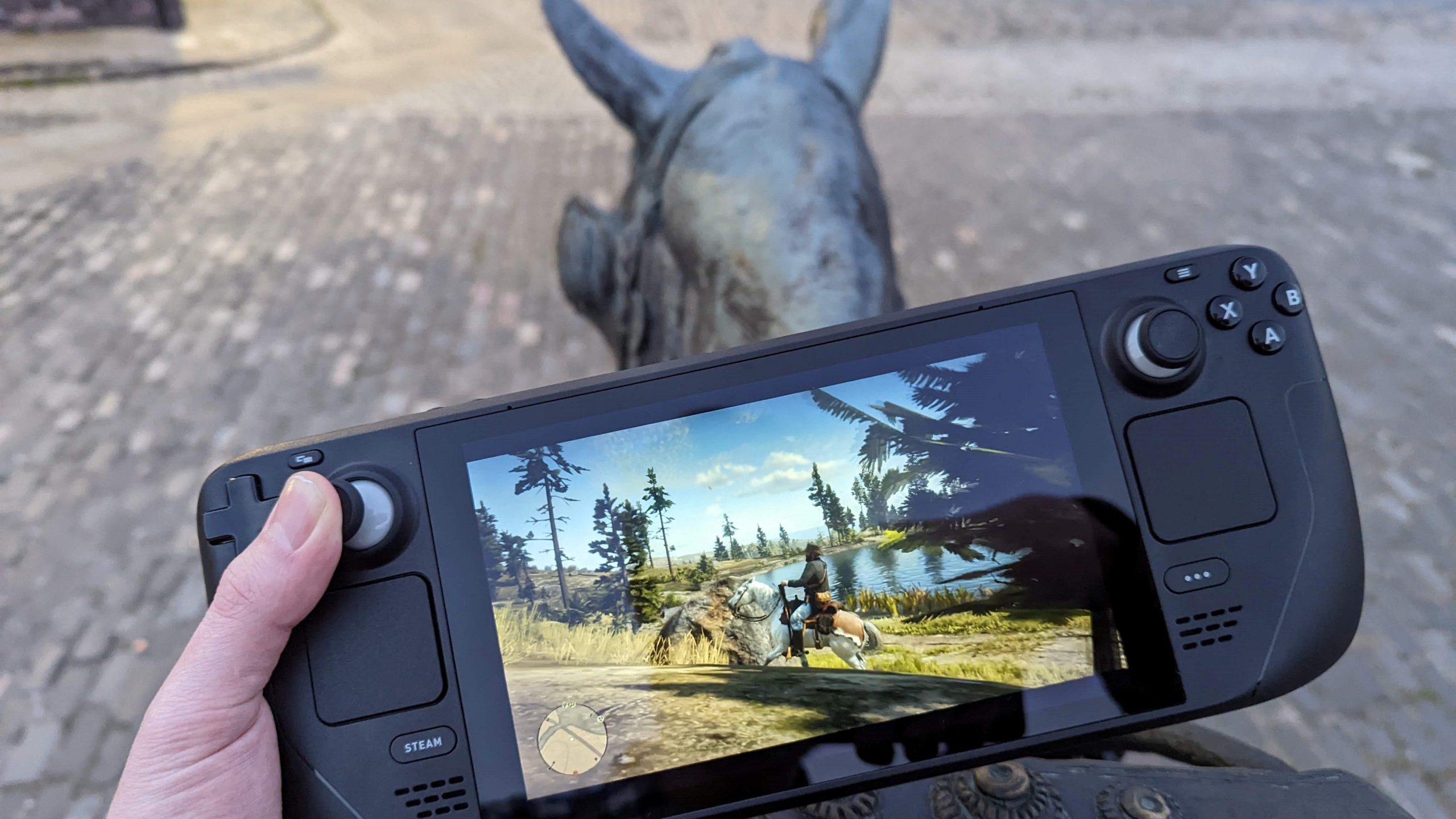There’s a game in my Steam library called Ryse: Son of Rome and I’m not sure how it got there. It’s been lurking for years, building itself a nest in the midden-heap of discarded indie games. I’ve never played it. I don’t think I even bought it. Not deliberately. Probably it hitched a ride with a charity bundle, but I like to think it snuck in by itself. I bring this up because I recently saw a forum post by someone who reached for their Steam Deck one day and, completely unbidden, played Ryse from start to finish. They’d had fun, but sounded bewildered, like they’d woken up after a heavy night out and were trying to account for some questionable choices. I couldn’t understand it either. Our little lives are rounded with sleep, and surely there are too few precious hours for a middling 2013 hack-n-slash. But, having had my own Steam Deck for over a week now, I think I get it.
The Steam Deck is Valve’s most recent – and most competent – foray into PC hardware. It’s a big, burly, Switch-looking handheld, which promises PC gaming on the go. It delivers in spades. Since it started shipping earlier this year, people have been putting it through its paces, feeding it Cyberpunks and Flight Simulators and watching the custom AMD processor work magic.
And it really is magic. Although the software has a few kinks, plonking the Steam Deck in your lap and booting Elden Ring feels like a childhood daydream come true. What surprised me most, though, is that raw horsepower is only part of the magic. The Steam Deck has redefined my relationship with my Steam library. Let me tell you.
Obviously, there’s the portability. Like the Switch before it, the Steam Deck cuts some of the restraints tethering you to your chair. Suddenly you can play PC-bound games in bed or lounging on the sofa. You can play Vampire Survivors at the breakfast table, or Phantom Pain on the loo. If you’re so inclined, you can even venture outside the house. It’s liberating. And, although the Deck is 50 percent heavier than Nintendo’s Switch, it doesn’t feel that way. Through some ergonomic wizardry it seems to float as you hoist it from room to room.
But that’s not all, I think. I’ve found gaming on the Deck more focused than at the desk.
If you’re anything like me, you do a lot of your gaming sitting at a PC. After a long day at work or school you wedge yourself into the chair and boot up whatever you have on the go. But sometimes you sit down and realise two hours later that you’ve done nothing but scroll reddit. Or, worse, you open a game but feel the gravitational pull of Twitter tugging your forebrain. Rather than fully engaging, you’re fighting the impulse to check your notifications, or the news, or Eurogamer. With games that grab your whole attention – Soulslikes, Roguelikes and the like – this is no great issue. But for less intense genres like, oh, let’s say walking simulators, it’s anathema.
